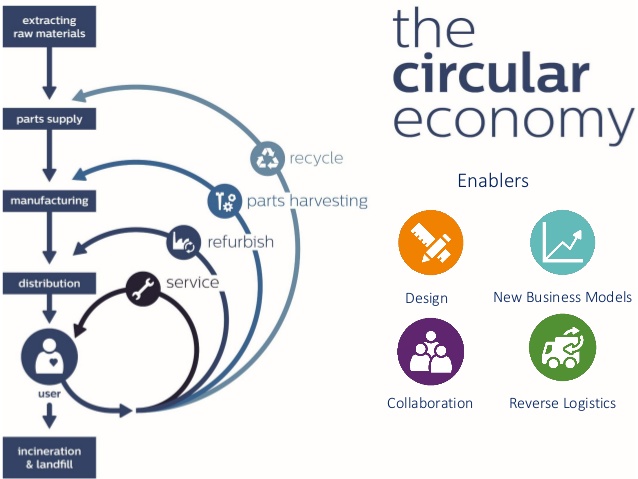Philips have been one of the first electronic companies to fully pursue a change towards a more circular economic approach. In recent years they’ve placed great emphasis on the application of ‘circular economy’ to their products and services which is hugely important for sustainability. We can see below a schematic, outlining how Philips are currently practicing circular economy. They have set out ambitious targets to reach, as they aim to tackle some of the sustainable development goals especially SDG 12, ‘responsible consumption and production’.

For example, their Performer Ultimate vacuum cleaner is a product which has been designed to have and support a circular economy and it’s principles. It is manufactured with 36% recycled plastics, which is a fundamental aspect of Philips’ approach to designing their consumer products. All products are designed with an aim towards reaching sustainability targets, as they hope to achieve 25% of their sales from circular products, services and solutions by 2025.
“Transitioning to a circular economy requires all of us to team up and commit to doing things fundamentally differently. The PACE Action Agenda will help guide and drive circular ways of working across the board, changing how we create value without devastating environmental impact. I call on all leaders in public and private sectors to join PACE and commit to adopt climate actions and prioritize circularity”.
Frans van Houten
CEO Royal Philips
